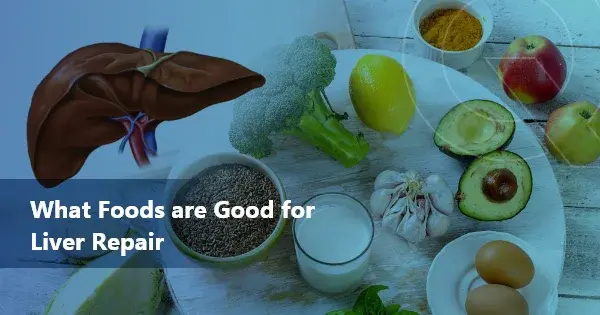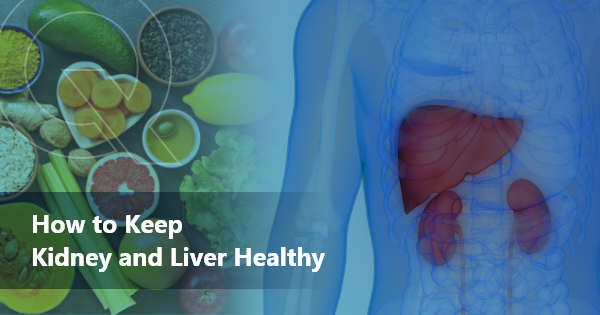The liver, often described as the body’s metabolic powerhouse, plays an irreplaceable role in maintaining our overall health. Responsible for processes ranging from detoxification to nutrient storage, this organ is essential for vitality and longevity. However, in our modern lifestyles, factors like processed foods, excessive alcohol consumption, and environmental toxins can place undue stress on the liver, potentially leading to damage over time. Fortunately, the key to restoring and fortifying this vital organ lies in the foods we consume. In this comprehensive guide, we will explore a diverse range of foods renowned for their exceptional capacity to support liver health and facilitate the repair process. From leafy greens brimming with antioxidants to omega-3 rich fatty fish, each of these nutritional powerhouses contributes to a holistic approach to liver well-being. Join us on this journey towards revitalizing your liver and enhancing your overall health.
1. Leafy Greens and Cruciferous Vegetables
Leafy greens such as spinach, kale, and collard greens, along with cruciferous vegetables like broccoli, cauliflower, and Brussels sprouts, are rich in antioxidants, vitamins, and fiber. These nutrients aid in reducing inflammation and eliminating toxins from the body. Furthermore, they contain compounds that support the liver’s detoxification processes, helping it function optimally.
2. Garlic
Garlic is renowned for its numerous health benefits, and its impact on liver health is no exception. It contains allicin and selenium, both of which support liver detoxification. Garlic also possesses anti-inflammatory properties that can help reduce liver damage caused by oxidative stress.
3. Turmeric
Curcumin, the active compound in turmeric, is a potent anti-inflammatory and antioxidant agent. Studies suggest that curcumin may help reduce liver inflammation, protect against liver injury, and even stimulate the production of bile, which aids in digestion and detoxification.
4. Berries
Berries like blueberries, strawberries, and raspberries are packed with antioxidants known as anthocyanins. These compounds have been shown to protect liver cells from damage and aid in the overall healing process.
5. Fatty Fish
Salmon, mackerel, and sardines are rich sources of omega-3 fatty acids. These essential fats are known to reduce inflammation and play a crucial role in maintaining healthy liver function. They also assist in regulating cholesterol levels and supporting heart health.
6. Nuts and Seeds
Walnuts, flaxseeds, and chia seeds are excellent sources of omega-3 fatty acids, fiber, and antioxidants. They help in reducing inflammation, improving cholesterol levels, and supporting overall liver health.
7. Avocado
Avocado is a nutrient-dense fruit that provides a healthy dose of monounsaturated fats, which can help improve cholesterol levels and reduce inflammation. It also contains glutathione, a powerful antioxidant that supports the liver’s detoxification processes.
8. Green Tea
Green tea is rich in catechins, which are potent antioxidants that have been shown to improve liver function and protect against liver diseases. Regular consumption of green tea may also help reduce fat deposits in the liver, a common condition known as fatty liver disease.
9. Beetroot
Beetroot is a natural source of nitrates and antioxidants that support liver health. It aids in improving blood flow and can help detoxify the liver. Additionally, beetroot contains betalains, which have anti-inflammatory properties.
10. Olive Oil
Extra virgin olive oil is a healthy fat that contains monounsaturated fatty acids. These fats have been associated with improved liver enzyme levels and reduced inflammation. Using olive oil as the primary cooking oil can be a beneficial dietary choice for liver health.
11. Cruciferous Sprouts
Broccoli sprouts, in particular, are packed with a compound called sulforaphane, known for its potent antioxidant and anti-inflammatory properties. Studies suggest that sulforaphane may help protect against liver damage and support its natural detoxification processes.
12. Lean Proteins
Including lean sources of protein like poultry, fish, and plant-based options like legumes and tofu in your diet is crucial for liver repair. These proteins provide essential amino acids that support tissue repair and regeneration.
Let’s delve deeper into some of the key nutrients and compounds found in these liver-boosting foods:
Phytonutrients: Nature’s Liver Healers
Many of the foods mentioned above are rich in phytonutrients, which are natural compounds found in plants. These phytonutrients have powerful antioxidant and anti-inflammatory properties, which are crucial for protecting liver cells from damage.
- Silymarin: This is a flavonoid found in milk thistle, a herb known for its liver-protective properties. Silymarin has been shown to promote liver cell regeneration and protect against toxins.
- Quercetin: Abundant in apples, onions, and citrus fruits, quercetin is a potent antioxidant with anti-inflammatory effects. It supports the liver’s detoxification process and reduces oxidative stress.
- Ellagic Acid: Found in berries and pomegranates, ellagic acid has been studied for its potential in preventing liver damage caused by toxins and reducing inflammation.
- Glucosinolates: These sulfur-containing compounds found in cruciferous vegetables like broccoli and Brussels sprouts aid in the detoxification process and support overall liver function.
Hydration and Liver Health
Staying well-hydrated is paramount for liver health. Water is essential for flushing out toxins from the body and aiding in various metabolic processes. While it’s important to consume the right foods, it’s equally crucial to maintain proper hydration levels.
Moderation is Key
While these liver-boosting foods can be immensely beneficial, it’s important to approach dietary changes with moderation and balance. Avoiding excessive consumption of certain foods, even healthy ones, is essential. For example, while nuts and seeds are nutritious, they can be calorie-dense, so portion control is advised.
Lifestyle Choices for Liver Health
A healthy diet is just one component of maintaining optimal liver function. Consider incorporating the following lifestyle choices for comprehensive liver support:
- Exercise: Regular physical activity can help manage weight, reduce inflammation, and improve insulin sensitivity – all of which are crucial for liver health.
- Limit Alcohol Consumption: Excessive alcohol consumption can lead to liver damage, so it’s advisable to consume alcohol in moderation or abstain altogether.
- Avoid Smoking: Smoking releases harmful chemicals into the body, putting additional stress on the liver. Quitting smoking can significantly improve liver health.
- Manage Stress: Chronic stress can contribute to liver damage. Engaging in stress-reducing activities like meditation, yoga, and deep breathing exercises can benefit both your mental well-being and liver health.
- Consult a Healthcare Professional: If you have existing liver conditions or concerns, it’s imperative to seek guidance from a healthcare professional. They can provide personalized advice tailored to your specific situation.
Final Thoughts
Optimal liver health is a cornerstone of overall well-being. By incorporating a variety of liver-boosting foods, staying hydrated, and adopting a healthy lifestyle, you can support your liver in its vital functions. Remember, small, sustainable changes in your diet and lifestyle can lead to significant improvements in liver health over time. Prioritize your liver, and it will repay you with improved vitality and well-being!
Conclusion
In conclusion, prioritizing the health of your liver through a balanced and nutrient-rich diet is a crucial step towards overall well-being. The foods mentioned in this article, rich in antioxidants, phytonutrients, and essential fatty acids, play a pivotal role in supporting the liver’s natural detoxification processes and promoting regeneration.
However, it’s important to remember that a holistic approach to liver health extends beyond diet alone. Lifestyle choices, such as regular exercise, moderation in alcohol consumption, and stress management, are equally vital in maintaining optimal liver function.
If you have specific concerns about your liver health, or if you’re managing a liver condition, seeking advice from a healthcare professional is paramount. They can provide tailored recommendations and monitor your progress.
Ultimately, by nourishing your liver with the right foods and adopting a health-conscious lifestyle, you’re not only safeguarding this vital organ but also investing in your overall vitality and longevity. Remember, your liver is a resilient and hardworking ally – treat it well, and it will repay you with enhanced health and well-being.





